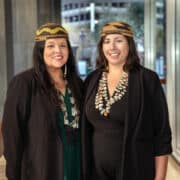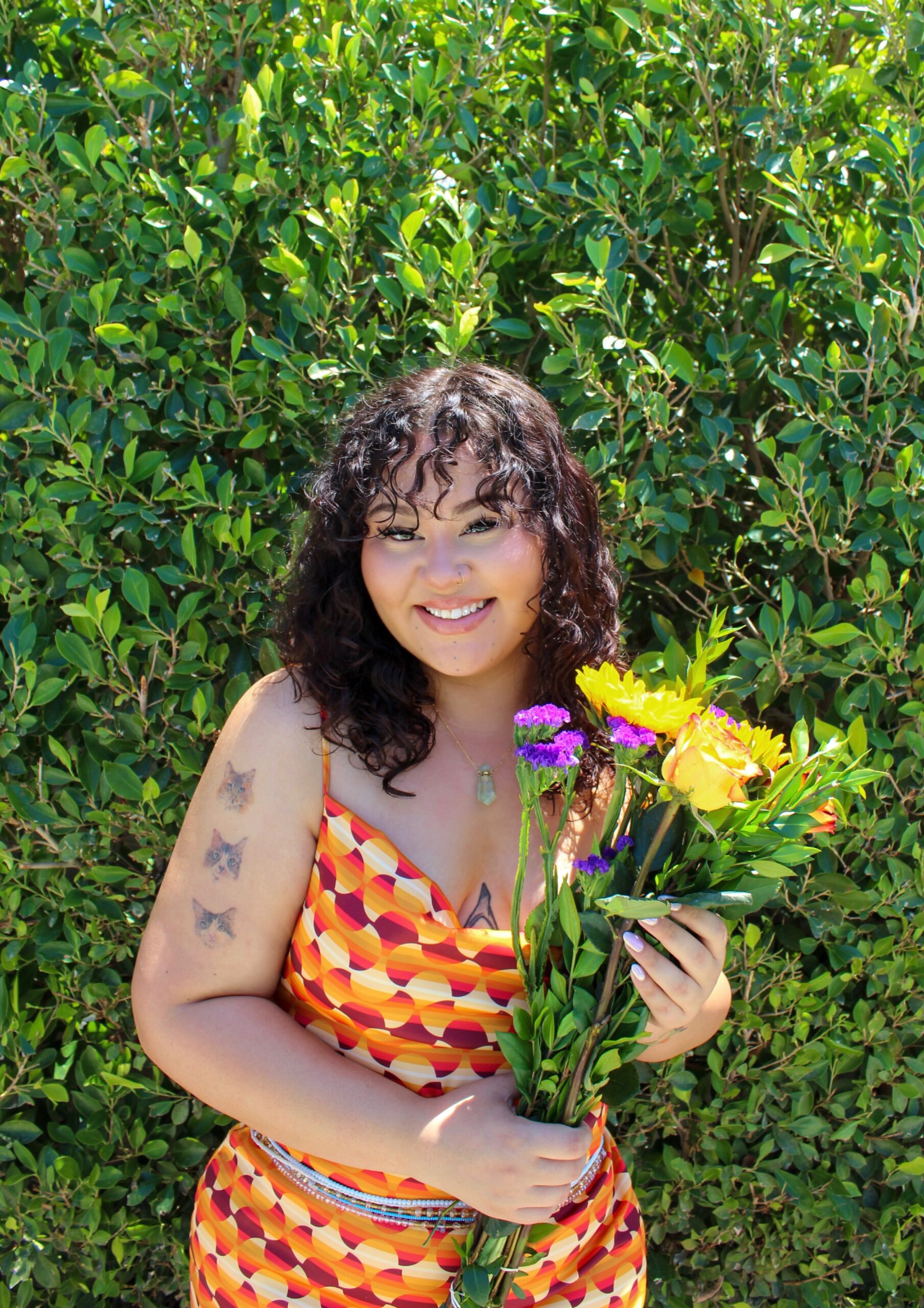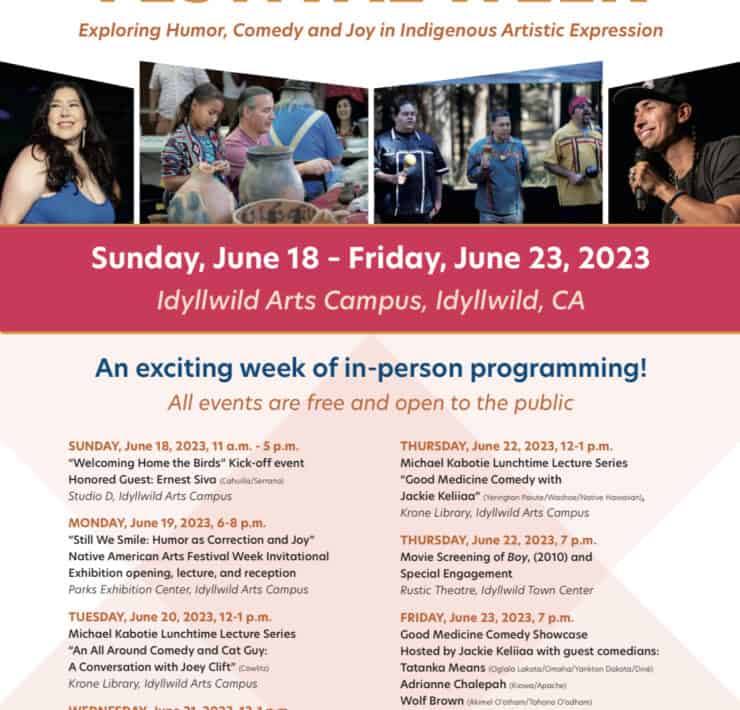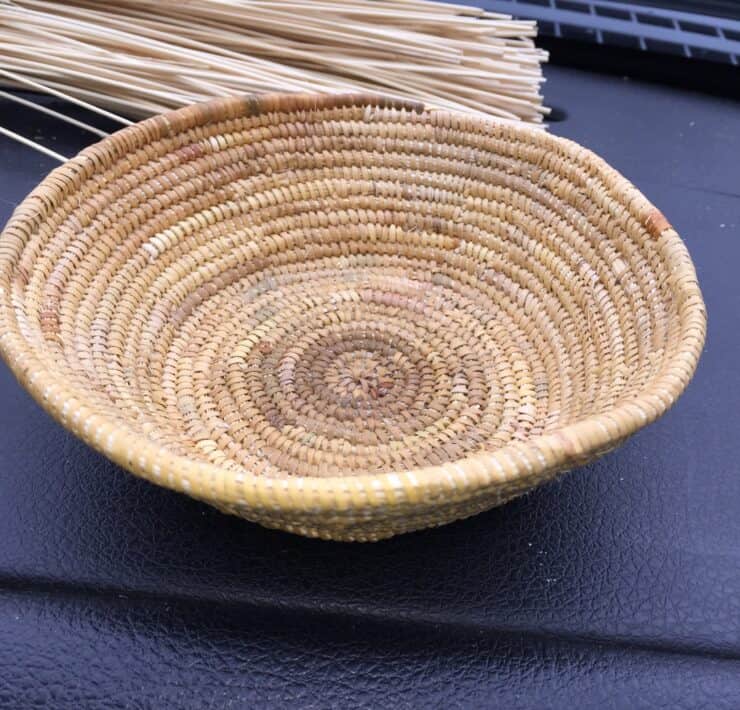By Emily Clarke
It’s a Wednesday afternoon at the Cahuilla Consortium office and as I walk into the comforting ambiance of the building, office manager, Pat Lerma, greets me with a big smile. Pat offers me a drink, gesturing to a corner of the office where I see soda, water, a coffee maker, and various snacks stacked and ready for the taking. Victim Advocate Joseph Yanez and Outreach, Prevention, and Education Coordinator Cesar Segura sit cutting conversation cards for an upcoming event about the meaning of consent. Other Victim Advocates, Analis Lamboy and Brittany Williams, are out-of-office working remotely or mobile. The office is equipped with many comfort items including a couch, children’s toys, and of course, the infamous Dobby, a black and tan Dachshund who cuddles with clients who may be feeling emotional or stressed out. There are duffle bags stacked along the wall, each filled with clothing and personal items. The bags are given to clients in-need when they have to go to the hospital, are escaping an abuser, or don’t have any items of their own. Whitney Liera, the in-house Therapist, has an office with various plush toys and blankets where clients can go to receive therapy or just be listened to. Program Advocate, Samantha Thornsberry, sits in her office with the Consortium’s Emergency Hotline phone nearby.
The Cahuilla Consortium Victim Advocacy Program is a resource that strives to end violence and victimization affecting Native people and communities. They help people of all genders, sexual-orientations, and ethnic backgrounds who may be suffering from financial abuse, domestic violence, sexual assault or harassment, human trafficking, or anything else in-between. The program was begun in 2010 by the Los Coyotes Band of Cahuilla and Cupeño Indians, who wrote a grant and invited the Cahuilla and Santa Rosa bands of Cahuilla Indians to join. (The Torres Martinez Band of Desert Cahuilla Indians also joined this year.) The Consortium hired Samantha Thornsberry as an advocate at that time. Samantha was a staff of one with just a laptop and a cell-phone as her two co-workers. Then, in 2018, the Cahuilla Band of Indians became the lead grantee for the Consortium and the Cahuilla Consortium office was born.
Samantha’s background was in teaching, so victim advocacy was a brand new endeavor for her. She had her first hotline call only 19 days after she started her advocacy work.
“I did a lot of training and I did a lot of crying in the bathroom,” Samantha admits, “because learning about domestic violence, sexual assault, and victimization brought up a lot of my own trauma. But I’m happy to say I’m better after all those tears and all that education, and I’m stronger. You have to be to help people.”
The Cahuilla Consortium team prides themselves on their practicality. From shopping with clients at Walmart to delivering truckloads of wood to victims living in houses without heating, the team goes above and beyond in any and every way they can to help those in need. The assistance that clients can receive through the Cahuilla Consortium includes referrals to Indian Health services, assistance with tribal enrollment, an array of emergency services, Uber to and from hospitals, help with filing a restraining order, court accompaniment, child advocacy services, community outreach, and much more. Although the consortium helps clients of any racial background, their focus is on victims within the Native community. Samantha believes that many Native clients feel more comfortable working with Native staff or with trained professionals that understand the Native perspective. Because of the historical trauma that many Native people experience, the Consortium team has to understand that the community they serve might be distrusting towards their services. However, according to Samantha, the tribal communities surrounding the office have been nothing less than supportive.
When I ask Samantha what a typical day here at the consortium might look like, she starts to laugh.
“First of all, it’s so great to have a team,” she says, “With more people, we’ve taken on doing more each day. But we never really know what the day is going to be like when it starts out. On Mondays, we have meetings where we all come together and brainstorm on things. Then, depending on the week, we share the hotline duties. The hotline is 24/7, so you never know when you may need to step away from what you’re doing and help someone in-need. Many of us have received calls while we were in restaurants, the movie theater, or just at home with our families.”
The thing that becomes apparent to me as I spend more time in this space is how far empathy and compassion can go when you work in a field such as this one. The team seems to have thought of everything. From the soothing atmosphere that invites you in the moment you open the door to the team’s willingness to go above and beyond by providing things like beading supplies to nervous clients, the Cahuilla Consortium is not only a place to receive necessary resources, but a safe space to take a moment to just breathe. There is no place for judgment or discrimination within this program, and it is a place where anyone can seek guidance or simply have a conversation.
As Samantha and the rest of the team continue to show me around the office, I ask if she has any advice for people who may be nervous to reach out to the program.
“No question is a stupid question,” she says, reflecting back on her time as a teacher. The Cahuilla Consortium Victim Advocacy Program is available to help anyone in-need, and their hotline is available 24/7. Please visit their website at https://www.cahuillaconsortium.org/ for more information, and don’t hesitate to call their hotline at 1 (951) 392-1919 if you or someone you know is in an unsafe situation. The Cahuilla Consortium is an open door to anyone who may need their assistance at any point in their lives. As Native people, we are used to being looked at as statistics for violence or crime, however, the Cahuilla Consortium recognizes those numbers as people and works tirelessly to help create a community in which each individual feels safe, happy, and heard.

